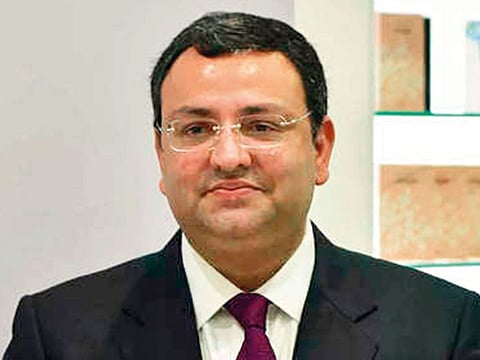If Cyrus Mistry’s death doesn’t teach us a lesson, nothing will
Biggest reason for car crashes in India is speeding, Delhi tops crash fatalities

The death of former TATA sons chairman Cyrus Mistry in a car crash has shaken India and is a wake up call for all of us. It has exposed our own lax attitude towards wearing seat belts and the pathetic state of road safety.
I have to confess that while I always wear a seat belt in the front seat of my car, I never did so in the back seat. A day after Mistry died, I found myself strapping my seat belt on in the back of the car as the driver took me to the airport. And I’ve continued to do so since.
Police say that Mistry and his co passenger in the back seat of the Mercedes SUV, Jehangir Pandole, were not wearing seat belts. The vehicle was travelling at high speeds when it hit a divider and crashed in Palghar, about 100 kilometres from Mumbai.
Both passengers on the front seats survived but they have critical injuries. However, experts say the fact that they are even alive is only because they were wearing seat belts.
Automobile expert Tutu Dhawan says when your car suddenly stops while travelling at a high speed, your body will lurch forward with nothing to hold you in place. All of this will happen in a matter of seconds and the force with which you lurch forward is so strong that you can even hit the dashboard.
Cyrus Mistry’s post mortem shows severe head injuries and multiple fractures in the head, chest, neck and thigh. He was likely killed instantly.
According to the US Center for Disease Control and Prevention, wearing seat belts reduces one’s risk of suffering injuries or death by about half.
As far as Indian laws are concerned, wearing seat belts both in the front and rear of the car is mandatory. Most people don’t follow this at all. And while cars have alarms that go off in the front if you don’t put it on, that’s not so for the rear seats. This is about to change.
Union transport minister Nitin Gadkari told NDTV that alarms on rear seat belts will be a regular feature and will be made mandatory. The order is being issued soon to all car manufacturers. Also a 1000 rupee fine will be imposed for not wearing a seat belt in the back of a car.
Rear seat-belts are an important safety device. According to the World Health Organisation (WHO), the use of rear seat- belt reduces the probability of being killed by 25% and injuries by 75%. Shockingly, a WHO study says only 10% school buses in India have seat belts for children.
Experts point out that many people falsely believe airbags are enough to save them. They are not. Because airbags are designed to complement seat belts, so on their own, they cannot do much.
What is really worrying is India’s road safety record. An independent survey released in January 2019 had recorded about 26,896 people having died in India due to the non-use of seat belts during the year 2017.
Data recently published by the National Crime Records Bureau reveals that crash severity on Indian roads climbed to 38.6 in 2021, up from 31.4 in 2016. Crash severity is basically how many deaths happen in every 100 road accidents. At 38.6, India ranked top among the most dangerous countries in the world when it comes to road crashes.
According to the Save Life Foundation which has analysed official data in detail, the country witnesses the largest number of road crash deaths with 42 road crashes occurring every hour, killing a person every 4 minutes. In the last decade, road crashes have killed about 1.5 million people and injured over 5 million.
The biggest reason for car crashes in India is overspeeding and Delhi has recorded the highest number of crash fatalities among Indian cities.
The maximum number of deaths are of two wheeler users (44.5%) followed by car users (15.1%)
What is worse is that an amended law in 2019 which was brought in to make road safety a priority with tougher fines, has not been implemented properly across the country. Six States/UTs have not yet implemented the act and those that have, have either reduced the fines or have not implemented the sections completely
In fact, in 2021 alone, 1,55,622 people were killed in road crash deaths. The number of road crash fatalities increased by 16.8% from 2020 to 2021.
There is also a problem of how our roads are designed. Experts say we need to do much more especially to make our highways safer.
For example, as the SaveLife Foundation points out, there is a poor provision of crash barriers, unsafe gaps in the median, signages are often covered by vegetation, there is poor visibility on roads at night and much more. We also have to ensure quick and effective trauma care in the event of an accident. Most times, these basic things are missing.
This essentially shows how poorly we prioritise road safety and the onus is frankly on all of us, on the government and on us as citizens. If Cyrus Mistry’s death doesn’t teach us a lesson, nothing will.




